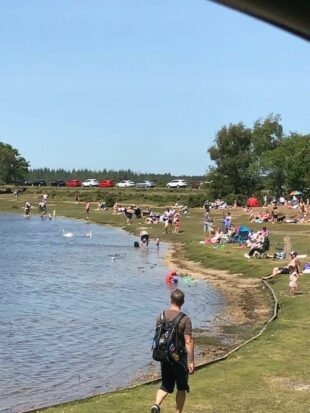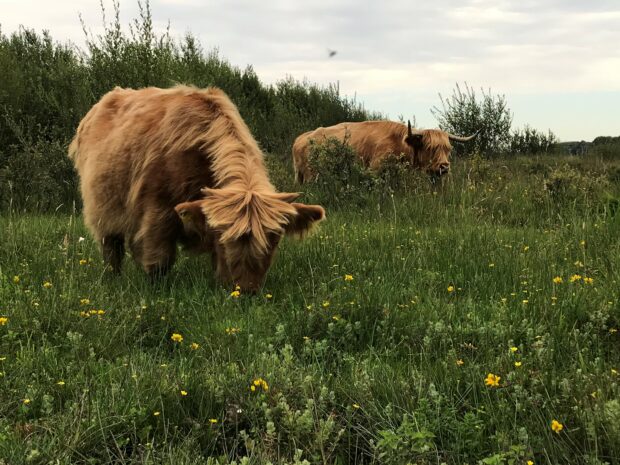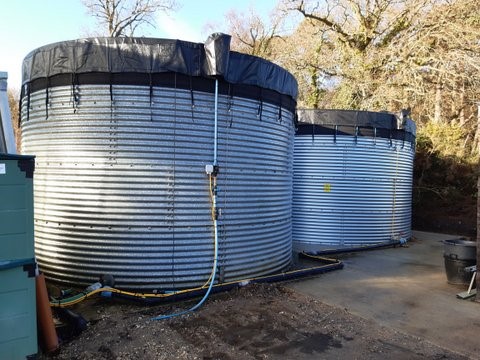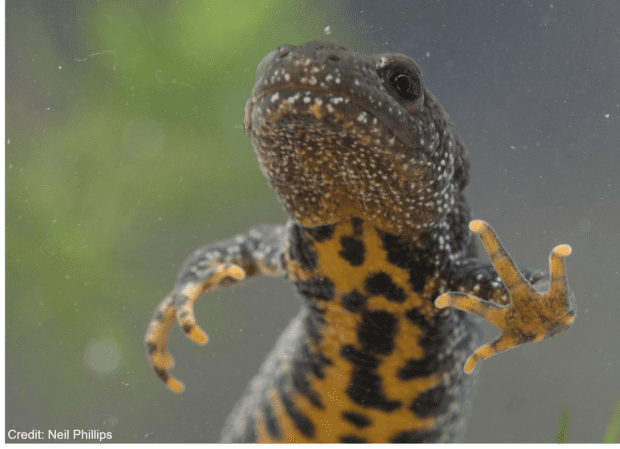
The New Forest is one of the most visited National Parks in England. With over 6000 camping pitch spaces per day, it is certainly a popular staycation offering an opportunity not only for people to reconnect with their families and friends but also to have a ‘close up’ experience with the landscape they choose to ‘pitch up’ in. Each year thousands of holiday makers choose to camp in the New Forest, giving the local economy a boost and providing some well-deserved down time from the busy lives people lead. However, are the visitors aware of the special nature of the New Forest’s wetlands, or possibly inadvertently damaging the very thing that attracts them here in the first place?
The New Forest is the second smallest National Park with the highest proportion of conservation designated land than any other in England. This wetland landscape from source to sea is ancient, fragile, with areas boasting pristine streams, ponds and mires bursting with rare species, making it one of the best and most Important Freshwater Areas and coastal landscapes in the UK. These habitats and species are dependent on the ancient practice of traditional grazing and clean water free from pollution.

However, there are signs that these habitats are under increasing pressure from visitors. Through discussions with landowners, partner organisations and local businesses coupled with regular catchment walkovers (a type of freshwater survey), over the years, a pattern has begun to emerge:
- Landowners who came to us for advice on land management and water pollution issues have begun to consider that their campsite business could be part of a package of works to reduce, reuse and recycle water (preventing runoff and reducing pressure on the local water environment).
- Increasing numbers of visitors are unsure about why some types of water-based recreational activities are bad news for fresh and coastal waters. As a result, they may be causing unintended disturbance to wildlife, erosion and compaction, and nutrient enrichment impacting negatively on sensitive habitats.
- Some motorhome owners may not know about the safe disposal of wastewater – e.g. tipping grey or black water (plus detergents and chemicals) into ditches, directly onto the ground and in coastal saltmarshes causes nutrient enrichment intolerable by fresh and coastal water plants and wildlife causing irreparable damage.

This year, and over the coming years, Freshwater Habitats Trust are delivering a project – Wilder for Water – through the Catchment Partnership, seeking opportunities to raise awareness amongst visitors and businesses and promote clean water camping and recreation throughout the National Park. The project, funded by the Environment Agency, aims to:
- Raise awareness of the unique wetland landscape supporting critically endangered species.
- Promote responsible access without negatively affecting fresh and coastal waters. Our New Forest Water Code outlines key visitor messages.
- Provide free and impartial advice and guidance on water resource and water quality management to recreation and camping providers.
We have an ambition to go beyond the minimum requirements in the management of waste water here in the New Forest, and we aspire to develop an educational and voluntary ‘clean water standard’ achieving best practice ensuring camping and recreation seeks to reduce, reuse and recycle, helping to maintain the high quality landscape into the future.
Our Water Code sets out how visitors can play a major role in protecting the New Forest wetland landscape.
You can also make a difference by becoming a #WaterWarrior this summer and take some small steps to protect water quality:
- Only flush the 3Ps – pee, poo and paper.
- never pour fats and oils down the sink.
- never flush wet wipes and sanitary products down the loo.
- always take your rubbish away from the beach.
- always bag and bin your dog’s poo - any bin will do!
- never pour waste liquids or throwing litter down surface water drains.

